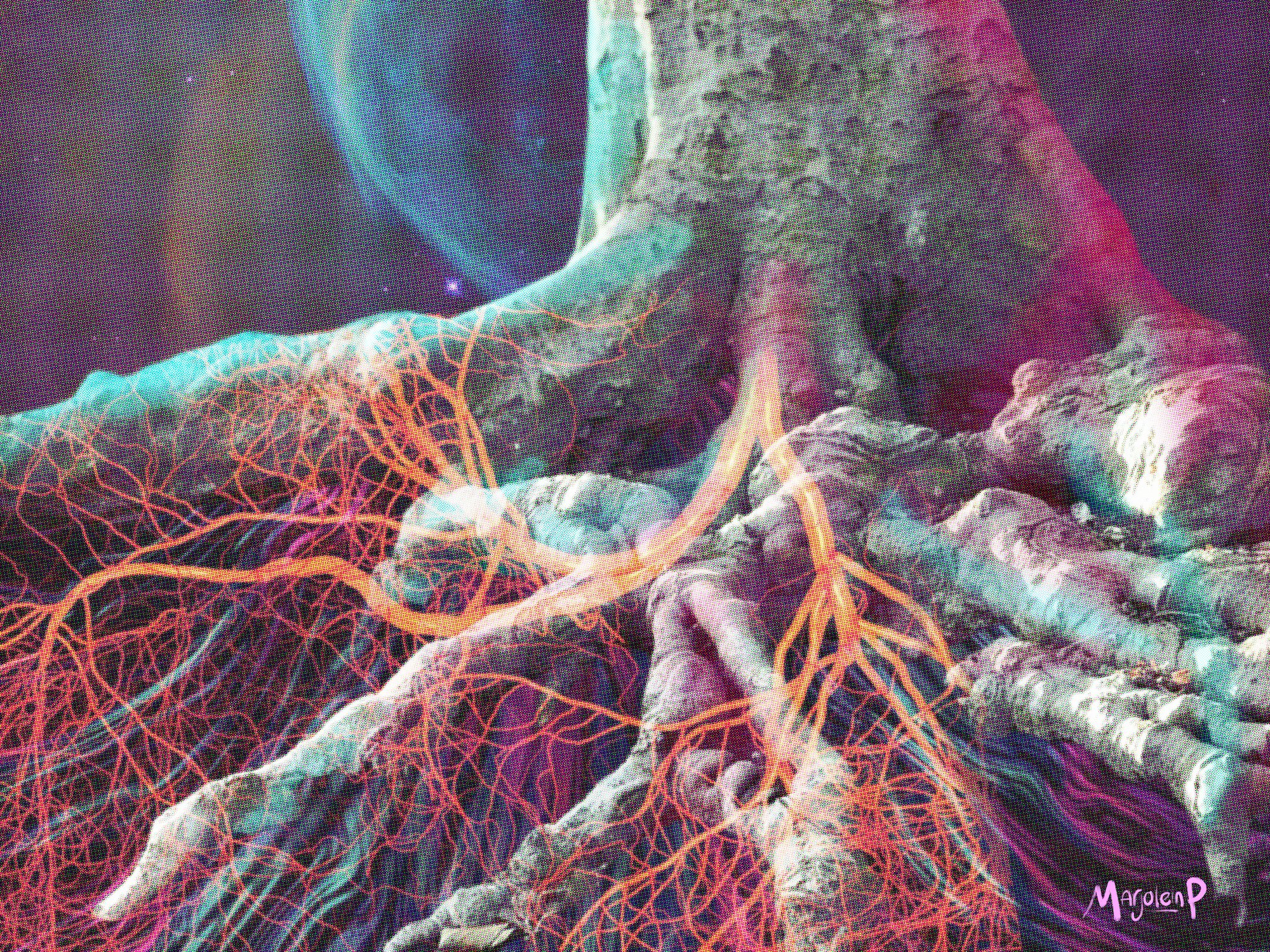Growing Roots and the Cost of Becoming (a) Collective
(c) Photo and edit Marjolein Pijnappels /wondermash
In our garden we hardly have any potted plants. Only the herbs have been put into earthenware, to prevent them from being overgrown with wild nettle and other greens. Potted plants are hard work: they need extra nourishment and water. Separated from the plant-fungi network in the nutrient rich open grounds they are fragile. Connected with other plants they are strong, but it’s hard to cut and harvest them, they become part of a dense mat of greenery that has relentlessly taken over our garden. In these dark and slow days my mind has been full of thoughts about roots and entanglements. Specifically my own roots.
I had a conversation with a family member the other day about my activism on behalf of the refugees in my town. It’s an emotionally draining fight against prejudice, bureaucracy and indifference while keeping a positive attitude for those we try to help. Tuesday it culminated in a protest march that attracted hundreds of local townspeople, caught the eye of the national news and resulted in pressuring the city council into agreeing to keep the camp open until all the people and families found a more permanent place. Unfortunately the mayor - who has the ultimate say - still decided to dismantle the camp and transfer ‘our’ refugees to yet another, temporary camp an hour away.
(c) Photo by Edward Media, edit Marjolein Pijnappels /wondermash
Deflated and numb we all returned home, telling ourselves that at least we had moved our community and possibly some people across the country as well. My family member had repeatedly voiced her concerns about my mental wellbeing in all of this. As a mom of two young kids, hardly out of the broken-nights-phase, building my new business, renovating an old farm house and garden, it’s not as if I have a lot of energy and emotional room to spare. Shouldn’t I spend that time and energy on my own family first?
The invention of individualism
The thing is, it is because I became a mother, that I became an activist. Birthing humans made me aware of the deep connections that exist between me and others. Our society is highly individualistic. Courtesy of Thomas Hobbes, the early Enlightenment philosopher, who claimed humans are individualistic by nature and social only out of necessity. Individual agency is a relatively new and European invention, and it’s not common everywhere. Because we’ve grown up in a society that’s built around the notion of humans as individuals, it seems outrageous to call individualism ‘not real’, but it is: it is a completely human construct. Many societies around the world assume deep relational connections - with humans as well as non-human beings - as the basis of their society. They do not view people as discrete units, but as communal beings, formed in their relations with others. Since diving deep into the specifics of life on earth, procreation and individuality in my series Creating Life for Future Based I learned about life’s inherent interconnectedness and relationality. Insights from ecology and human biology show that this is not merely a spiritual viewpoint, but it has material roots as well. We exchange cells with others from the moment of conception through a process called microchimerism, literally becoming part of each other. In nature there are countless examples of intertwined creatures that not just need each other to survive, but where it’s hard to distinguish one individual from the other, like in the mycorrhizal connections plants and fungi form.
The cost of becoming collective
Becoming rooted into the collective comes at a cost. We lose a sense of individualism that is comfortable when the world is in turmoil. Being an individual makes it easier to retreat in one’s shell and let the world be. Being (in) a collective dispenses with that luxury. When you are rooted in the collective, if the collective is happy, you are happy, but if it is suffering, you are suffering too. That is where I am now. I’ve become fully rooted in this local community that I call home now for a year. It takes energy and emotional space that I do not always have room for. But roots’ veins flow in both directions: I do not just give, I receive as well. That is the promise of the collective. Once you are tapped in, you are overgrown and supported. I’d rather be a wild weed, than a potted parsley. It makes it harder to cut me down.


